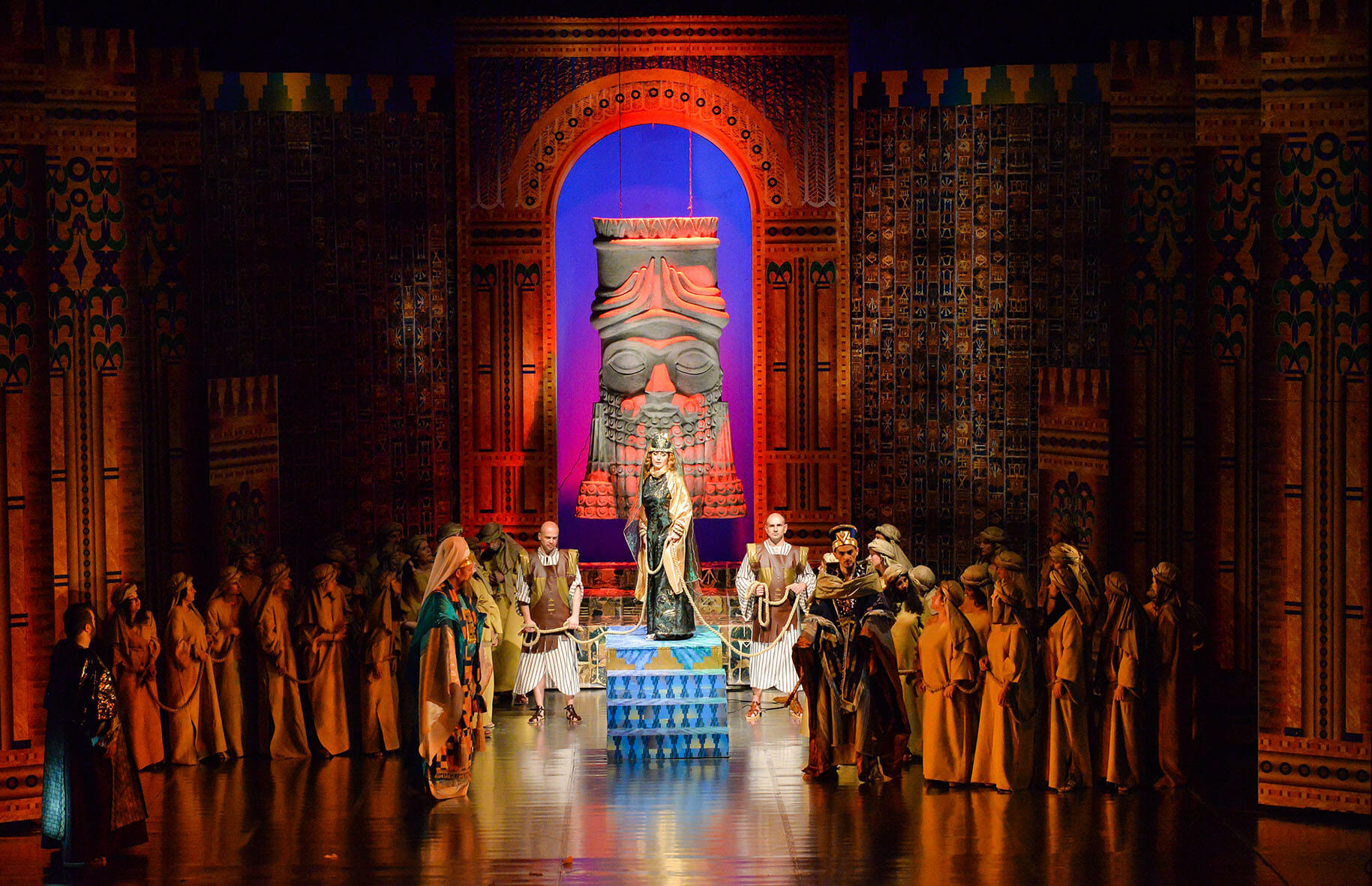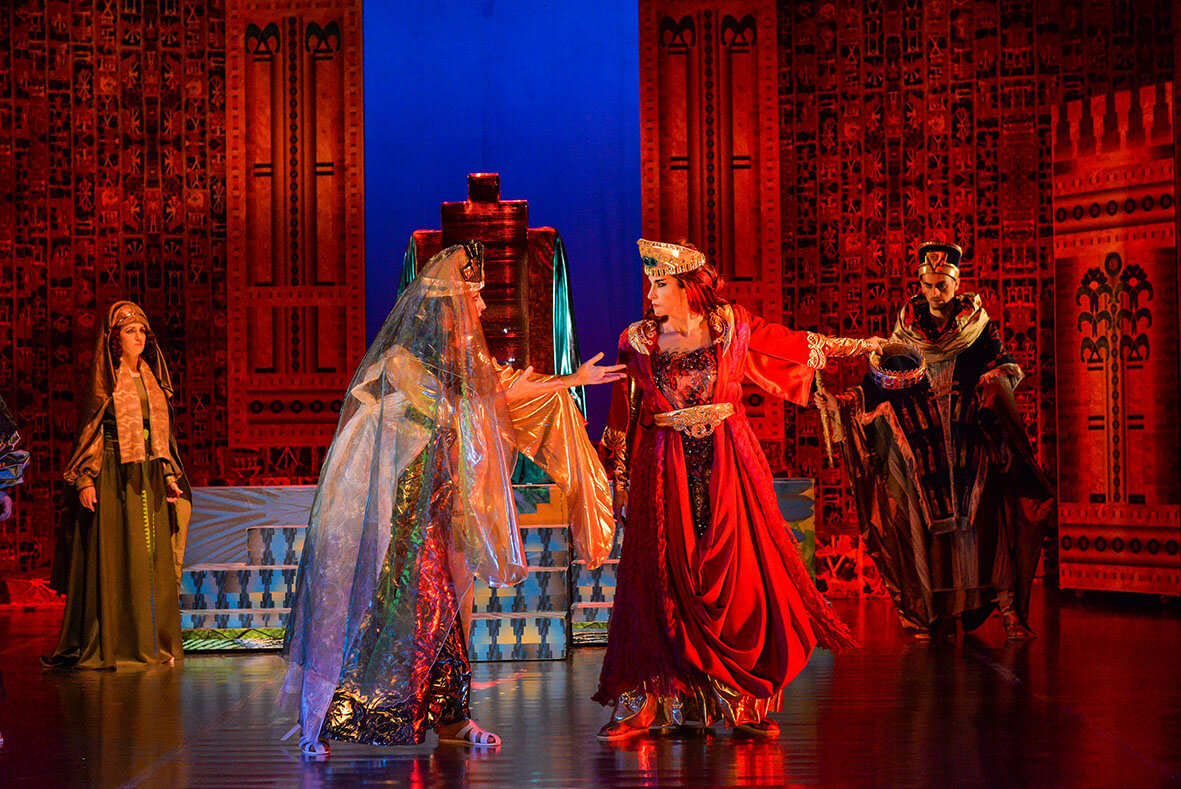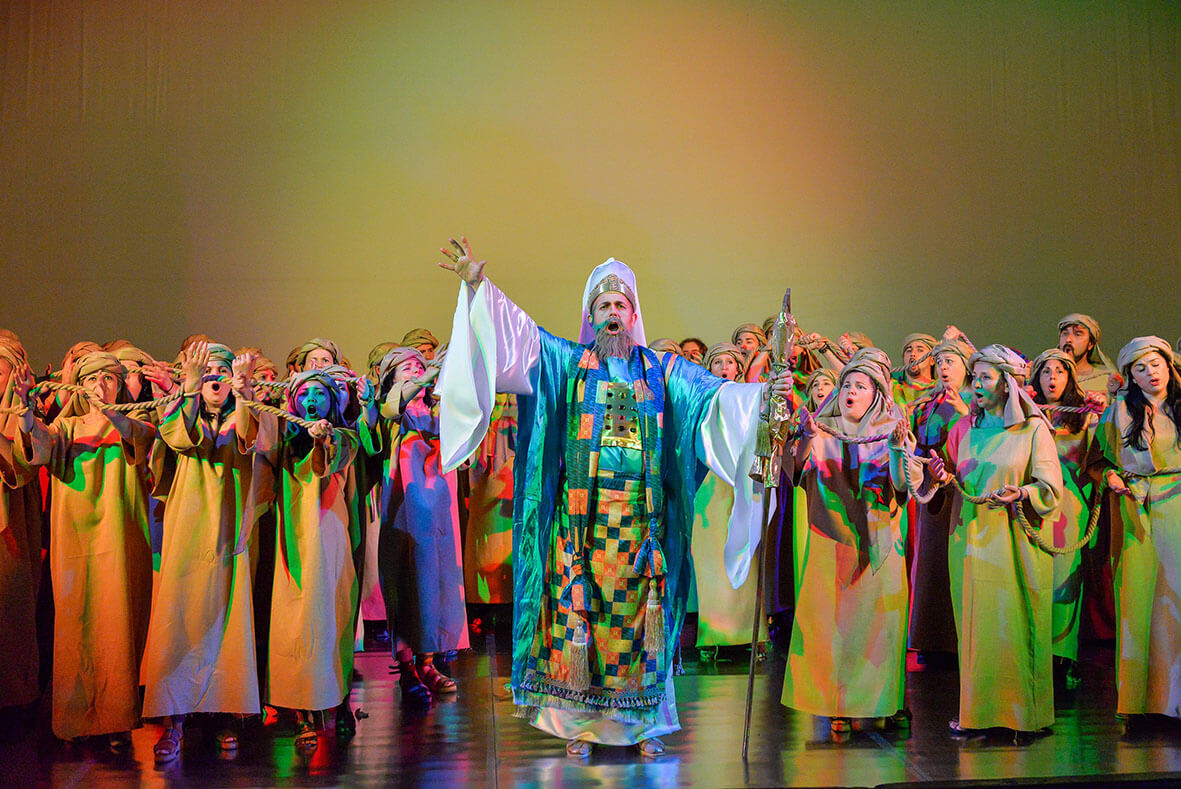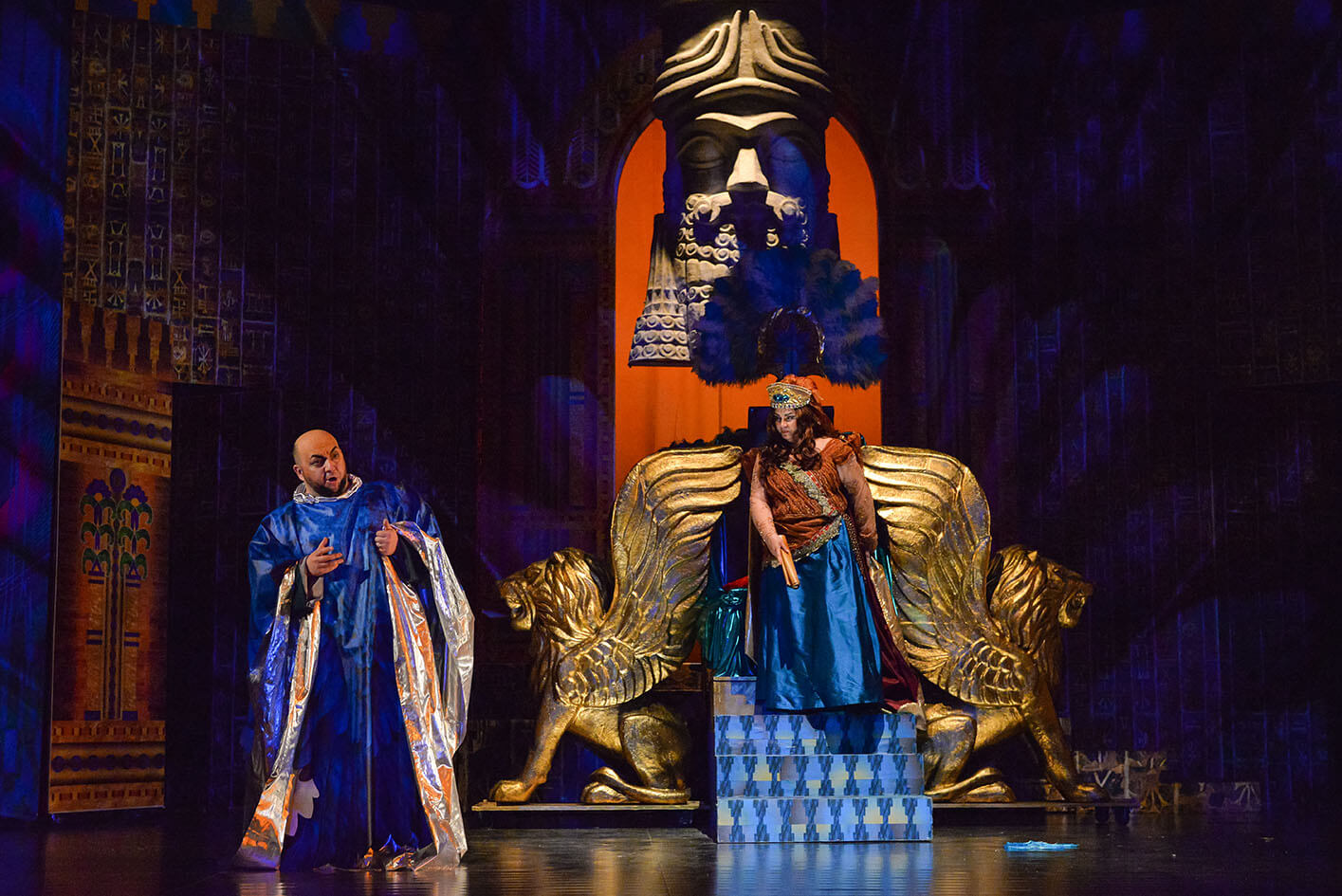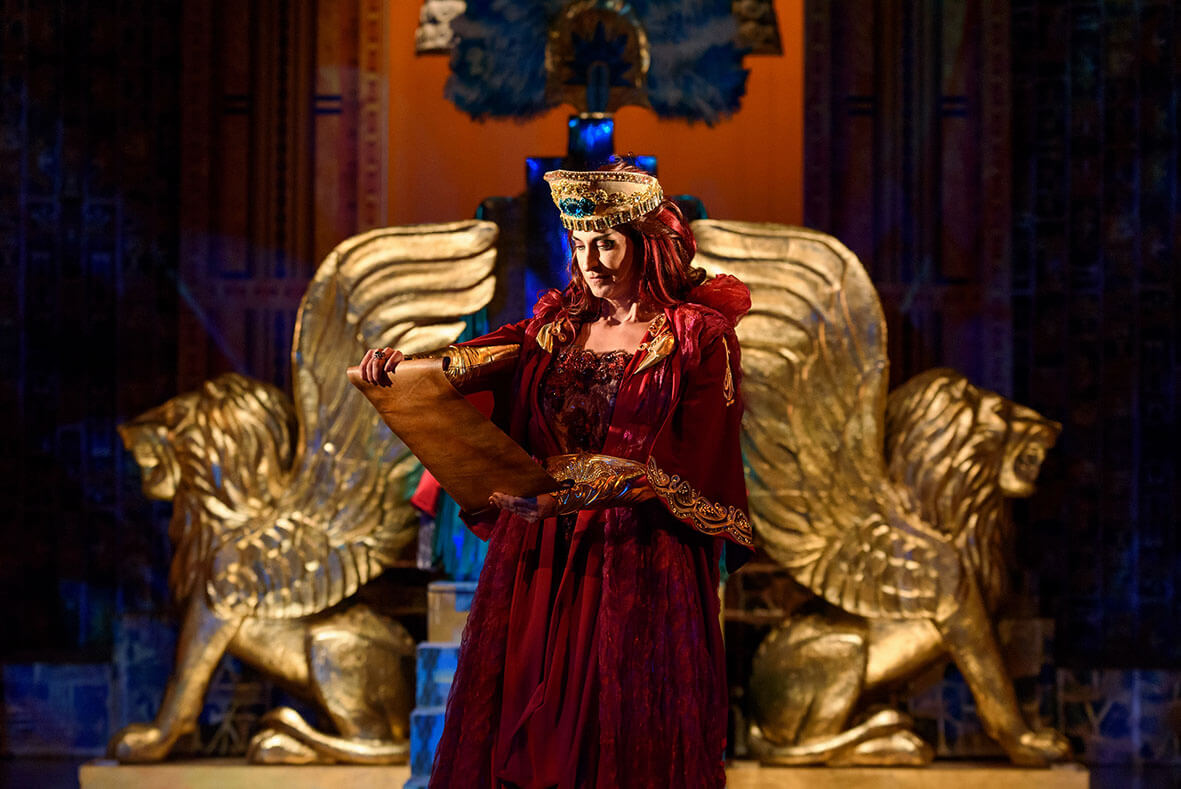
Main Hall
distribution
Artistic direction: Ina Hudea (invitată)
Scenographer: Liliana Moraru (invitată)
Stage movement, Choreography: Marius Toda
Nabucco: Șerban Vasile (guest)
Ismaele: Hector Lopez
Zaccaria: Gelu Dobrea (guest)
Abigaille: Alice Lopez (guest)
Fenena: Liza Kadelnik
Marele Preot: Cristian Hodrea
Abdallo: Eusebiu Huțan
Anna: Larisa Ștefan
The Orchestra, The Chorus and The Ballet Ensemble of The Romanian National Opera of Cluj-Napoca
Chorus Master: Emil Maxim
Chorus conductor: Corneliu Felecan
Assistance artistic direction: Alina Simona Nistor
Stage and backstage direction: Cristina Albu
description
show category: opera
Opera in four acts on a libretto by Temistocle Solera, inspired by the play Nabuchodonosor by Auguste Anicet-Bourgeois and Francis Cornu and the ballet Nabucodonosor by Antonio Cortesi
Recommended age: 7+
Besides the impressive composing skills particularly exerted in the lyric genre, Giuseppe Verdi (1813 – 1901) – “l’italianissimo” – was famed during his life for his creative excellence and the revolutionary, patriotic attitude, as a distinguished supporter of the fight for the unification of Italian states. Of all the operas that reflect his militant attitude, Nabucco has a special resonance. After the relative success of the first two operas presented on the stage of of the Scala Theatre of Milano and after successive losses of family members in just two years (1838 – 1840), Giuseppe Verdi had given up the idea of ever composing. However, he was deeply moved by Temistocle Solera’s libretto, inspired from the Old Testament and, implicitly, by the praying verses which would later form the chorus of Jewish slaves – Va pensiero, sull’ali dorate –, which determined him to return to his creative art. Throughout 1841, Verdi composed the opera Nabucodonosor, which would open at Scala in the following year, on 9 March, marking the beginning of an undoubtedly bright artistic career and setting a popularity record that still holds to these days.
The subject follows, throughout the four acts, the evolution of the Jewish people’s condition – from opression to freedom – but also the evolution of emperor Nabucodonosor’s attitude – first arrogance, then humility – regarding the Almighty God. Ina Hudea’s directing vision is faithful to the original dramaturgical conception, while Liliana Moraru’s scenography displays its spatial component in a modern, contemporary context.
The performance has one break and ends around 9.00 p.m.

